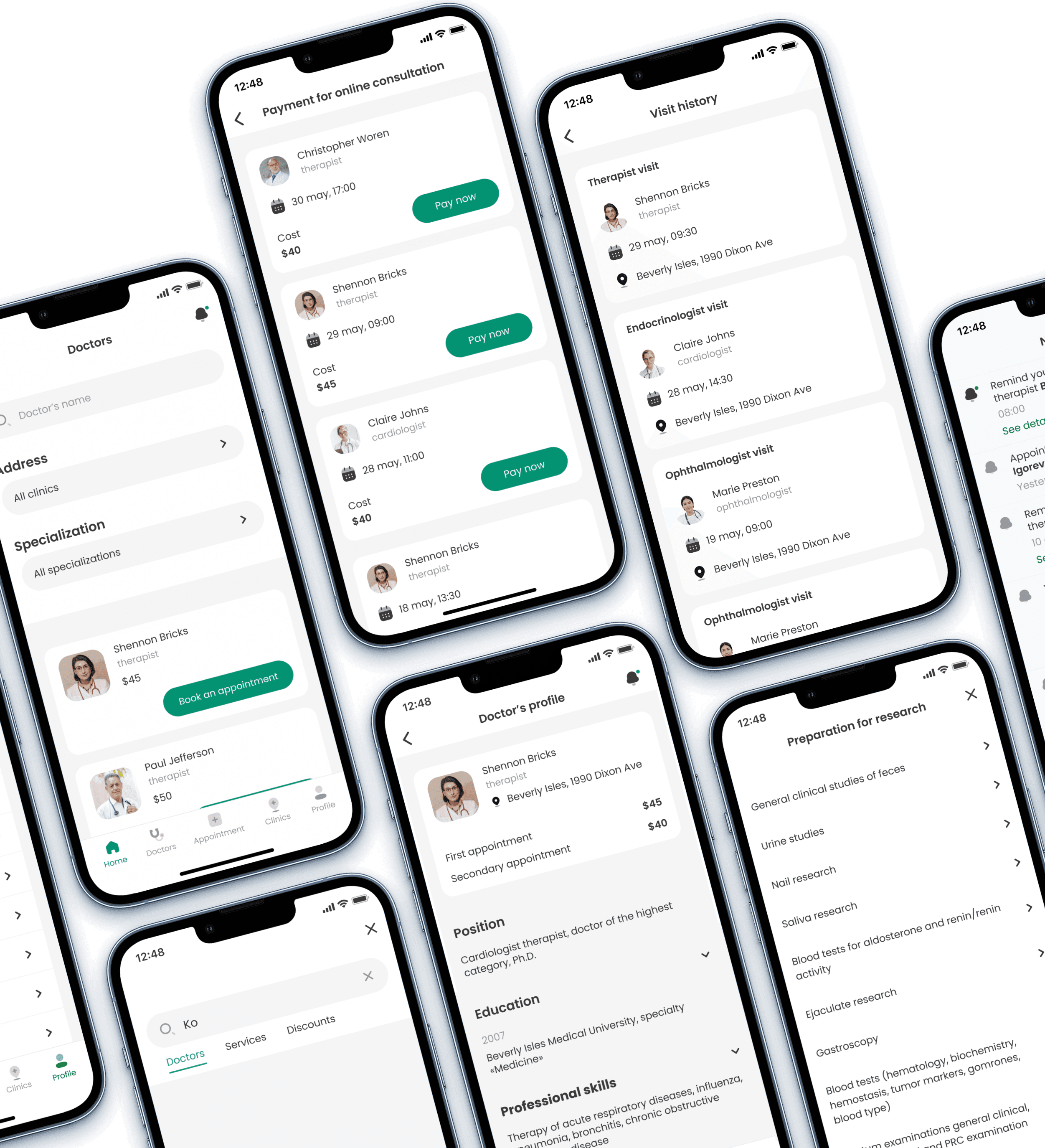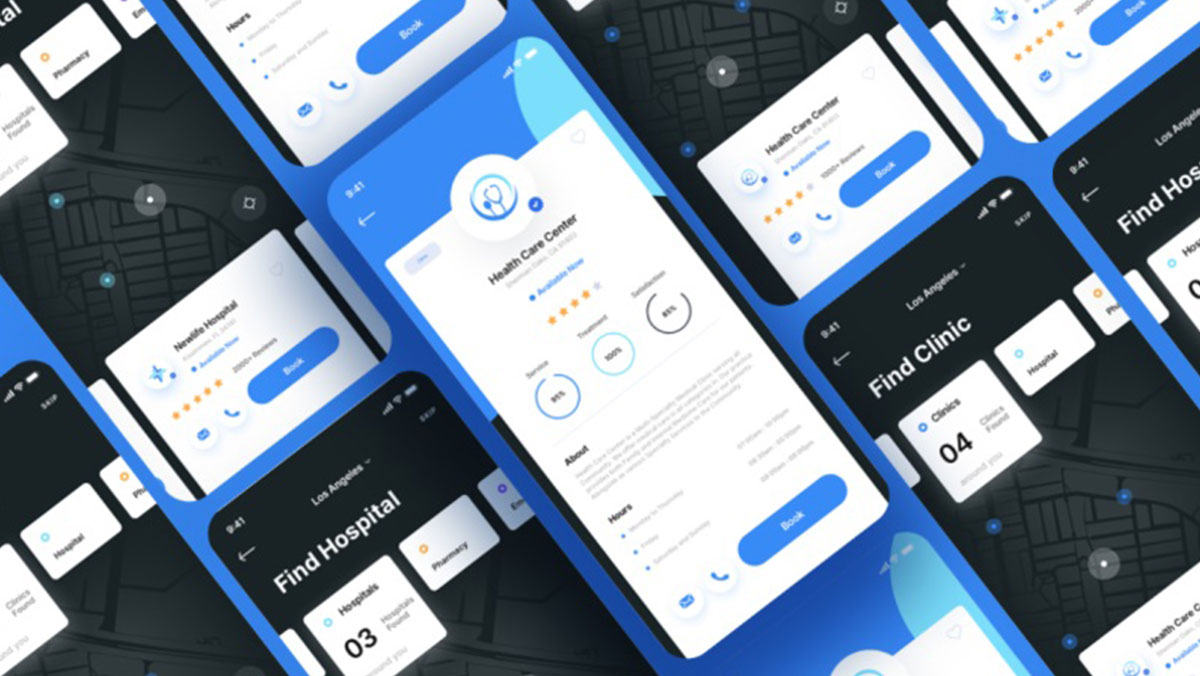Just How a Mobile Application Can Enhance Performance in Your Center
The combination of a mobile application into your center's procedures offers an appealing opportunity to improve overall efficiency. By streamlining consultation organizing, enhancing individual communication, and facilitating document management, such an app can transform daily operations. Clients gain from practical accessibility to their timetables, while personnel can delight in real-time updates to individual details. The influence of these attributes expands past plain comfort; it affects the high quality of care provided. As we explore the complex benefits of a mobile application, a number of essential considerations emerge that warrant more exam.
Streamlined Visit Scheduling

Mobile apps enable individuals to publication, reschedule, or cancel visits at their ease, eliminating the requirement for phone telephone calls and minimizing delay times. By incorporating real-time availability of carriers, clinics can lessen spaces in the timetable, making best use of resource usage.
Moreover, automated tips sent out through the app can decrease no-show rates, making sure that consultations are maintained which time is made use of properly. The data collected via the application can also help clinics evaluate peak appointment times, enabling for much better staffing decisions and enhanced service shipment.
Furthermore, a mobile app fosters a smooth link in between individuals and center personnel, simplifying interaction relating to appointment modifications or crucial clinic updates. On the whole, implementing a mobile app for consultation organizing not only improves operational effectiveness but also adds to a much more positive experience for both individuals and health care suppliers.
Improved Patient Interaction
Via the usage of a mobile application, centers can substantially improve individual communication, fostering an extra interesting and transparent healthcare experience. A devoted mobile platform allows clinics to streamline interaction networks, permitting clients to easily access crucial information concerning their care.
With functions such as protected messaging, patients can connect directly with doctor, helping with timely responses to worries and queries. This instant gain access to helps to ease stress and anxiety and makes sure that clients feel supported throughout their health care journey. Mobile applications can give patients with real-time updates about their consultations, therapy plans, and any changes in clinic hours, thereby reducing complication and boosting overall satisfaction.
Additionally, the capacity to send out press alerts regarding pointers for medicine, upcoming appointments, or wellness suggestions improves client interaction and adherence to treatment strategies. This aggressive technique not just promotes a sense of responsibility amongst clients yet additionally advertises far better health end results.
Effective Document Monitoring
Reliable record monitoring is important for centers intending to optimize their operations and enhance patient treatment. A mobile application can dramatically simplify the process of maintaining and accessing patient records, ensuring that healthcare carriers have prompt accessibility to important information. By digitizing records, clinics can eliminate the ineffectiveness associated with paper-based systems, such as shed files, lengthy searches, and troublesome filing processes.
Mobile applications enable real-time updates, guaranteeing that client info is precise and always current. This immediacy reduces the chance of mistakes that can visit their website emerge from out-of-date records, therefore improving patient security and treatment end results. Additionally, boosted information safety and security gauges fundamental in mobile applications safeguard sensitive person info, making certain conformity with policies such as HIPAA.
With simple accessibility to electronic wellness documents (EHRs) with a mobile app, clinicians can invest less time taking care of paperwork and more time concentrating on individual care. This change to electronic document administration not just enhances effectiveness yet also improves the general patient experience by reducing wait times and streamlining visit scheduling. Eventually, effective record administration via mobile modern technology is a basic part of a contemporary, reliable facility.
Enhanced Staff Partnership
In today's busy medical care atmosphere, improved personnel cooperation is essential for delivering premium person care. A mobile app can work as a main center for communication, permitting healthcare experts to share information and updates in real-time. This immediacy cultivates a culture of synergy, where registered nurses, medical professionals, and administrative staff can collaborate patient treatment extra successfully.
By using features such as instantaneous messaging, shared schedules, and job management tools, centers can improve operations and lower the response time for client requests. A nurse can rapidly notify a doctor concerning a patient's modification in condition, making sure that prompt interventions are made. Moreover, the ability to accessibility patient information from another location allows team to stay informed, despite their place within the center.
The mobile app also enables the sharing of best practices and sources, equipping team to discover from one another and improve their abilities (mobile app for clinics). Eventually, improved team cooperation not just improves operational effectiveness yet likewise contributes to a more natural job setting, which is vital for preserving high standards of patient treatment. By leveraging innovation, centers can develop a collective atmosphere that focuses on teamwork and communication among health care professionals
Data-Driven Decision Making
Utilizing data-driven choice making is essential for facilities intending to enhance individual end results and operational efficiency. Mobile apps outfitted with robust data analytics capacities make it possible for health care professionals to gather, analyze, and interpret client information efficiently. This empowers centers to make informed choices based upon real-time his response understandings, causing boosted treatment delivery.

Data-driven decision production also facilitates aggressive monitoring of chronic conditions. By keeping an eye on patient adherence to therapy strategies and involvement degrees via mobile applications, health care providers can interfere prompt, possibly stopping issues and medical facility readmissions.
Ultimately, integrating data analytics into clinic operations not just promotes a culture of continuous enhancement however likewise aligns with the growing demand for individualized, patient-centric treatment. This strategic strategy makes sure that centers are well-equipped to adapt to evolving healthcare landscapes while preserving high standards of solution.
Conclusion
By improving appointment organizing, enhancing person communication, and facilitating efficient document monitoring, centers can decrease no-show prices and foster openness. Eventually, the fostering of mobile modern technology serves as an essential tool in improving medical care techniques, making certain that both individuals and carriers profit from boosted solution shipment.
People benefit from convenient access to their schedules, while team can delight in real-time updates to patient information. Mobile applications can offer people with real-time updates concerning their consultations, therapy plans, and any adjustments in facility hours, thus minimizing complication and improving total fulfillment.

By simplifying appointment scheduling, boosting individual interaction, and facilitating efficient document monitoring, facilities can decrease no-show rates and foster openness.
Comments on “Transforming Patient Experience with a User-Friendly Mobile App for Clinics”